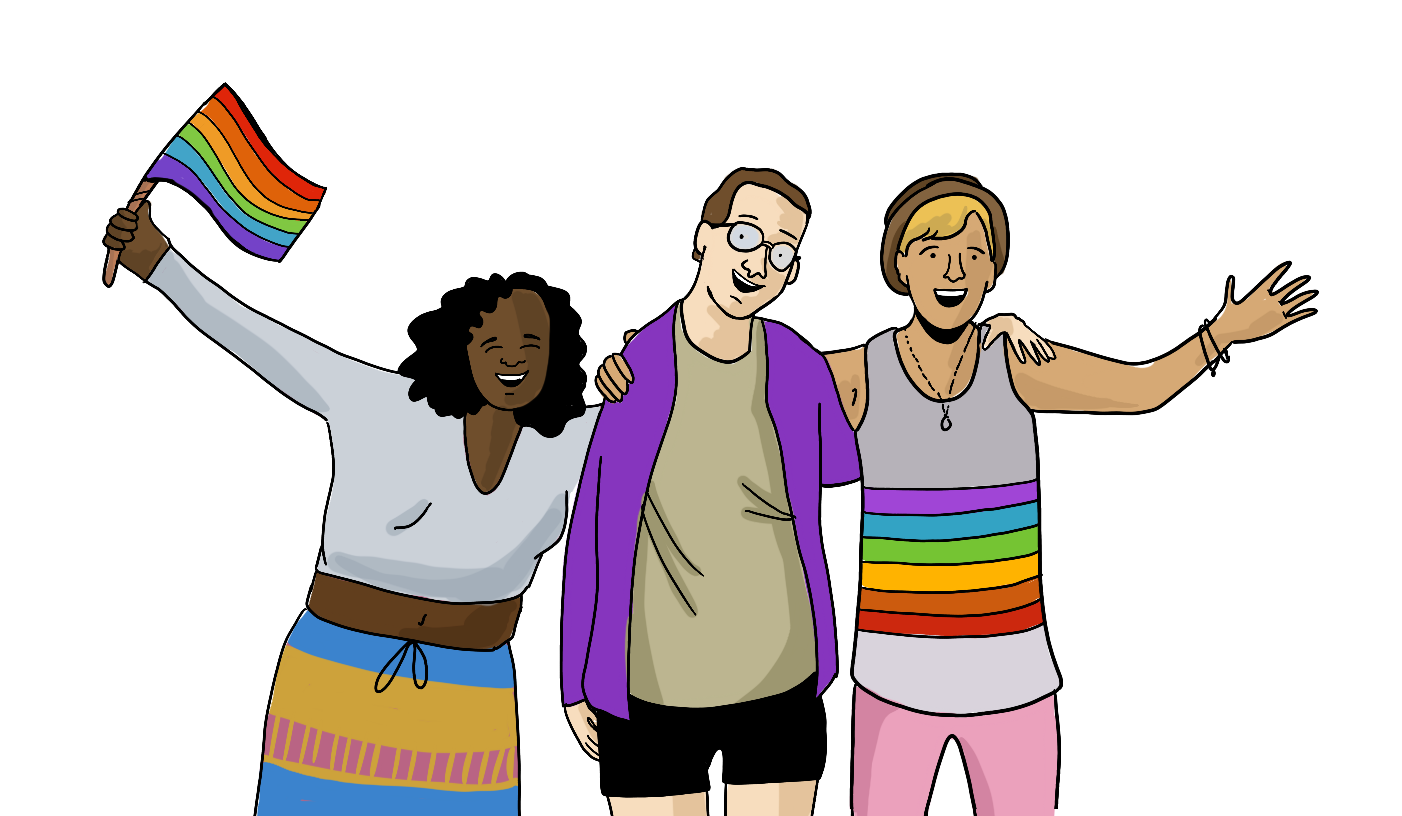The Latest Findings in 2SLGBTQ+ Wellbeing
Would you like to see your research featured on Queer Care Kit? If so, email us with a blurb and/or visual representation (e.g., infographic) at qtpocresearch@gmail.com or contact Dr. Monica Ghabrial
The Importance of Pronouns
This is an editorial commenting on a study that found that use of inclusive language was significantly associated with wellbeing at work for trans people. In our editorial, we explain how using correct pronouns is a public health issue, both because it is so important to wellbeing for trans people (a group that faces significant health disparities associated with discrimination, including misgendering) and because of the ways in which pronouns are used to uphold a gender binary that is harmful not only to trans people, but to everyone who is disadvantaged under systems of gender oppression.
Click here to read more about the study.
"In Spite of the System"
This study involved a survey of over 700 women and gender diverse people in Ontario, as well as interviews with 12 2SLGBTQ+ people who were living in poverty. From our survey data, we found that 2SLGBTQ+ people living in poverty had more contacts with the mental health system, but were less likely to have their mental health needs met, than either 2SLGBTQ+ people who were not living in poverty, or cisgender heterosexual people (whether living in poverty or not). In our interviews, we heard stories of the work that 2SLGBTQ+ people living in poverty have to do to navigate mental health systems, deal with discrimination, and find supports for themselves and their communities. Our findings suggest the need for more publicly funded mental health services that are competent to address the needs of 2SLGBTQ+ people.
"Slighted and Unheard"
This study involved analysis of patient charts for 12 bisexual people who experienced a psychiatric admission. We analyzed the ways in which bisexuality was addressed, or not addressed, in the patient charts through a Mad Studies lens (a field of scholarship that centres the voices and experiences of people labelled as 'mad'). We found that largely, bisexuality was ignored in the context of peoples' psychiatric admissions, even when they mentioned it as relevant to their mental health experiences (e.g., stress associated with family being unsupportive). When bisexuality was addressed, it often seemed to be misunderstood by mental health professionals, for example, treated as a symptom of an underlying mental health issue. Based on these findings, we argue that the mental health system plays a role in upholding binaries related to sexual orientation (i.e., straight or gay as the only options) by making bisexuality invisible or impossible without being labelled as in need of mental health treatment.
Click here for the original study.
